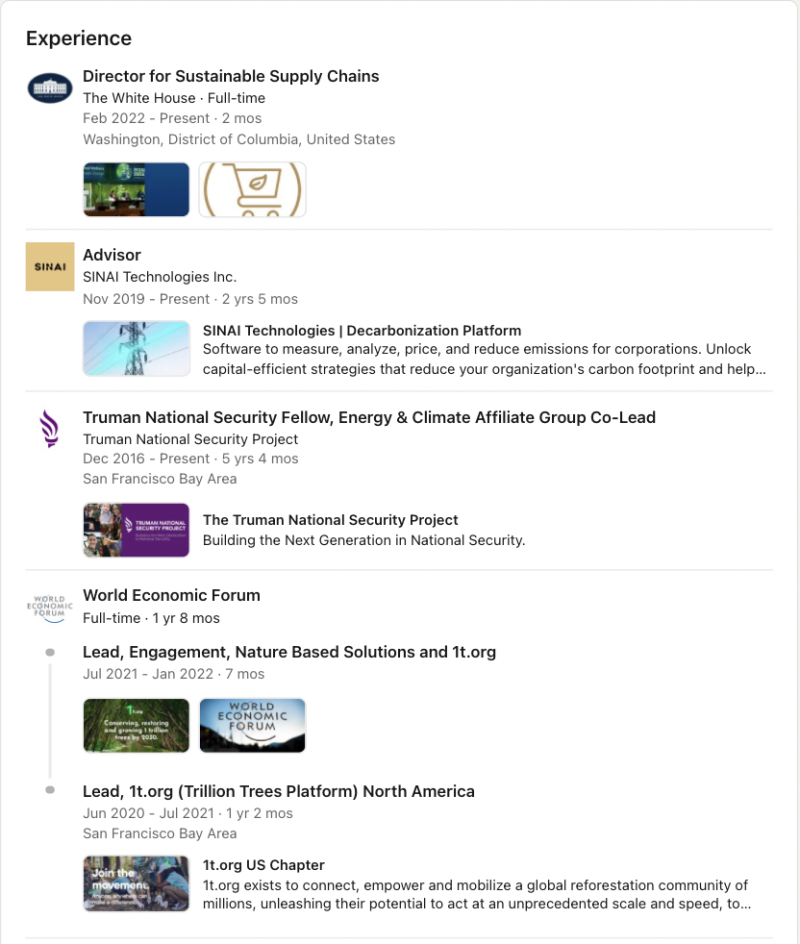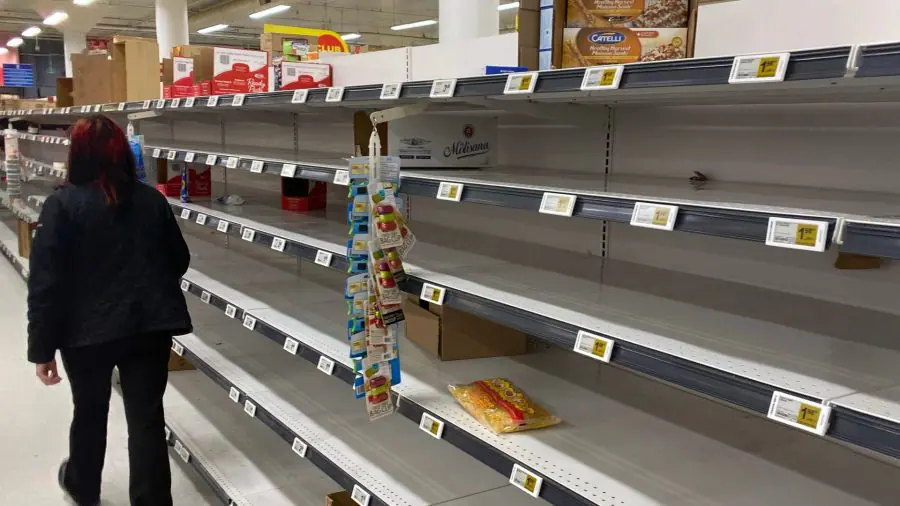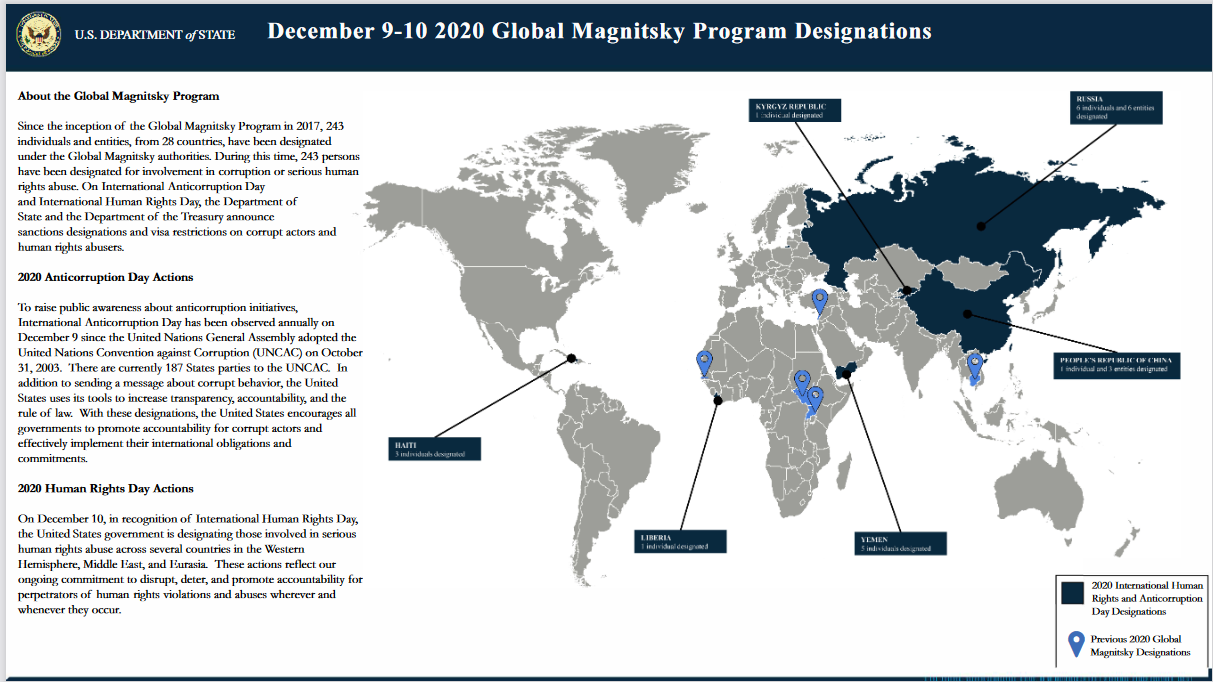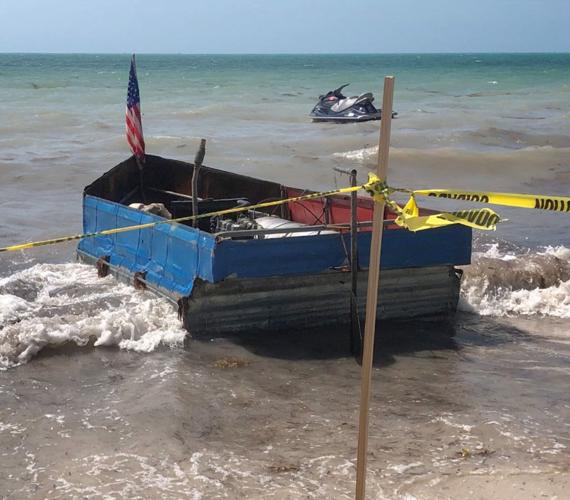Nepotism and the World Economic Forum on full display….
A leading advisor to President Joe Biden on supply chains is an alum of several World Economic Forum climate change initiatives, who additionally served as a former fellow at a think tank chaired by Hunter Biden.
Betty Cremmins, whose LinkedIn profile reveals she’s held the position of Director for Sustainable Supply Chains at the White House, since February 2022, has overseen the U.S. government’s ongoing supply chain issues, exacerbated by policies that mandated vaccines for many American workers and truckers.
Prior to taking over the White House’s supply chain initiative, Cremmins was a National Security Fellow and Climate Affiliate Group Co-Lead at the Truman National Security Project. The Washington, D.C.-based, left-leaning foreign policy network has featured Biden’s son Hunter Biden on its board since 2011.
Archived versions of the organization’s website reveal that Biden ascended to the role of vice-chairman of the board, serving there until at least March 2019 and, therefore, overlapping with Cremmins’s fellowship.

In addition to her ties to the Hunter Biden-linked group, Cremmins is also an alum of the World Economic Forum (WEF), chaired by Klaus Schwab. The WEF, which seeks to abolish private property ownership, has exploited issues like COVID-19 and climate change for its controversial “Great Reset” agenda.

Cremmins was previously the Lead of “1t.org,” a WEF initiative in support of the United Nations Decade on Ecosystem Restoration, from June 2020 to July 2021. The initiative seeks to “conserve, restore and grow one trillion trees by 2030,” demonstrating how environmental issues are often intertwined with WEF’s broader agenda. She was later promoted to the Lead on Engagement for “1t.org” and the WEF Natural Climate Solutions Alliance, which seeks to combat climate change through “voluntary or compliance action” with businesses, governments, and investors.
Cremmins has also authored several articles for the WEF website focused on combatting climate change via the private sector.
“Beyond the disruptive and tragic effects of the COVID-19 pandemic, the world finds itself facing a crisis like no other in every corner of the planet; the accelerated destruction of nature and the impacts of climate change. Although these issues have often been regarded in silos, we cannot ignore that they are inextricably linked,” explained Cremmins in a post from July 29th, 2021.
Cremmins also worked for Carbon Disclosure Project (CDP), a “not-for-profit charity that runs the global disclosure system for investors, companies, cities, states and regions to manage their environmental impacts.” The CDP runs a Supply Chain program, where Cremmins previously served as its Senior Account Manager, that prioritizes sustainability and combatting climate change among the world’s leading multinational corporations.
“To transform the global economic system to prevent dangerous climate change,” explains the objective of the program in a slideshow presentation delivered by Cremmins.
Cremmins’s unearthed role in the White House follows The National Pulse revealing another WEF-linked activist advocating for Chinese Communist Party-style “re-education camps.”
*** Meanwhile, in February of 2021 –> President Biden signed Executive Order 14017 directing an all-of-government approach to assessing vulnerabilities in – and strengthening the resilience of – the United States’ critical supply chains. Read more of that here.
There are still major shortages across the country and the cargo ports such as Long Beach are still backed up. So, Amazon Web Services is the solution?
The nation’s second-busiest port will use a new data management technology from the Amazon subsidiary Amazon Web Services for its “Supply Chain Information Highway,” meant to help put an end to stagnated goods movement in the region.
The Long Beach port’s Supply Chain Information Highway is a new digital infrastructure initiative that will provide cargo companies with a streamlined hub to aggregate and manage data across industries.
The information highway, which Amazon Web Services will operate, “aspires to maximize visibility and efficiency of cargo movement at the Port and throughout the supply chain,” according to a Port of Long Beach press release. “The new system will allow supply chain stakeholders to obtain actionable insights to help with planning, scheduling, and improving their systems.”
Shortages are still a major problem as of this post and they include the following:
- medication
- fertilizer
- baby formula
- chicken…wings
- computer chips/semi-conductors
- gasoline
- plastics
- construction material
- food
- paper products
- chlorine
- grain/corn





